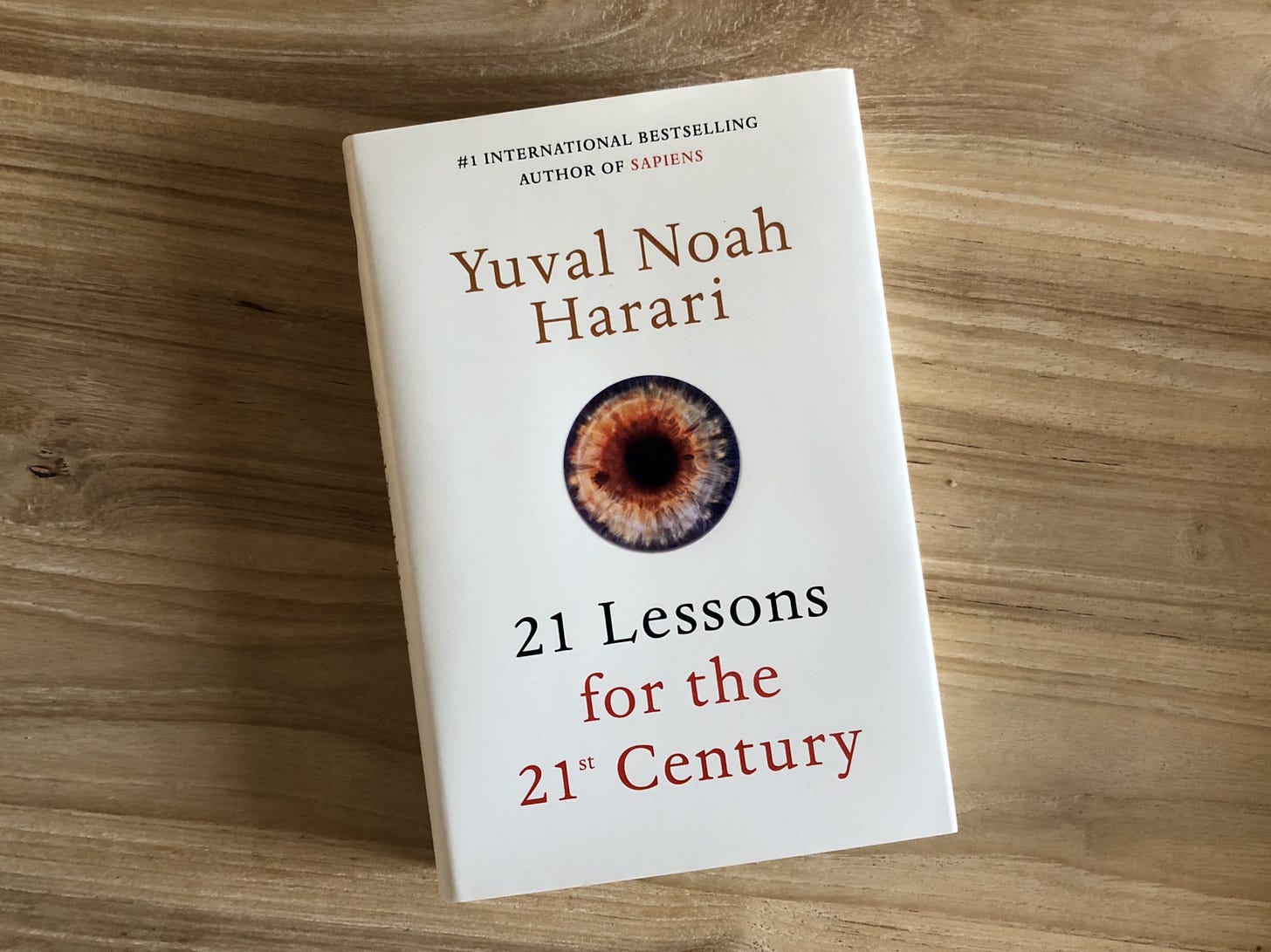Book Review—21 Lessons For The 21st Century By Yuval Noah Harari
Harari tries to predict the Future
When I took a look at the title of this book, I felt that I was seeing the headline of a Buzz Feed article. But then, the name of the author reassured me. I am glad that he chose a clickbait-y name for this remarkable book. (Otherwise many would ignore it).
The book aims to apprise the reader of global challenges in the 21st century. Grand ideas and predictions presented by the author in his book is fascinating and impressive. These predictions are scary and ominous in many ways.
In the first part, Harari explores how people around the world are disillusioned with both communism and free market economics. He says that there is a void in the minds of people around the world, and nobody knows how to fill this space. In fact his opening paragraph is one of the best I have ever read.
“Humans think in stories rather than in facts, numbers or equations, and the simpler the story, the better. Every person, group and nation has its own tales and myths. But during the twentieth century the global elites in New York, London, Berlin and Moscow formulated three grand stories that claimed to explain the whole past and to predict the future of the entire world: the fascist story, the communist story and the liberal story. The second world war knocked out the fascist story, and from the late 1940s to the late 1980s the world became a battleground between just two stories: communism and liberalism. Then the communist story collapsed, and the liberal story remained the dominant guide to the human past and the indispensable manual for the future of the world- or so it seemed to the global elite.” ~ Yuval Noah Harari
The author explores how technology is eating into jobs and how this phenomenon could drastically change the socio-political landscape of the entire world.
Harari explores how internet surveillance can snatch the hard-won liberty of the whole of humanity. This doesn’t sound surprising when we contemplate how smartphones have enslaved our entire generation.
While conjecturing the future of ‘equality’ in the coming decades, Harari points out that divided between rich and poor will be a result of upheavals in the job market and technological domains.
I found myself agreeing with Harari in the first part. But our ideas started to clash with each other when he took up political issues. Before I started reading this book, I was aware of the fact that Harari is a left-leaning historian.
The connotation of ‘left-leaning’ includes a desire to oppose majoritarianism, authoritarianism, nationalism and religious extremism. As an individual, I concur with Harari on religious extremism. The other three issues are open for examination on a case to case basis.
Majoritarianism is justified when minority-focused politics hurts the larger interest of a country. In fact, democracy is majoritarianism in disguise. Nationalism can be constructive and helpful to individuals and societies.
It need not be compared to Hitler’s era all the time. In my opinion, authoritarianism is acceptable when power is wielded with responsibility and dedication.
I don’t concur with Hariri and other left-leaning individuals on nationalism, authoritarianism and majoritarianism. But, I believe in reading works of people who challenge my ideological leanings. I admire and respect the writings of talented people across the aisle.
Harari asks the reader not to panic when he or she thinks about terrorism. He claims that more people die due to accidents and diseases. Thus terrorism should not be given so much importance. This argument is dangerous and idiotic. The willingness to share public spaces, especially crowded ones is a sign of great trust and harmony in any society.
Terrorism attacks this intangible and essential aspect of life. It cannot be taken lightly. In addition to this, the religious colour of terror can’t be denied. Terror motivated by religion is a significant threat to the world. If we willingly ignore this menace, we will have to pay the price of our failure in the near future.
The author goes on to talk about humility, war, god, secularism, ignorance, justice, post-truth and science fiction in further chapters. He points out how these issues are affecting/ have affected people in different parts of the world. The flow of thoughts in these chapters is not mind-blowing. But these issues have been dealt engagingly.
The most exciting chapter of the book is on ‘Education’. What sort of education will be useful for survival in the next century? This question has to make politicians and educationists think hard.
Harari identifies 4-Cs: critical thinking, communication, collaboration and creativity as the most vital skills which will be necessary for those who enter the job market in the coming decades. He says that individuals will have to reinvent themselves again and again to survive in the job markets of the near future.
Towards the end of the book, Harari talks about ‘Meaning’ and ‘Mediation’. These are abstract concepts, no doubt. But he delves into personal experiences that he has had with techniques like Vipassana.
He claims that he spends two hours a day on meditation. How many of us can afford to put in two hours? Anyway, I am glad that I spend an hour on Yoga every day.
And I am glad that I read this book.


